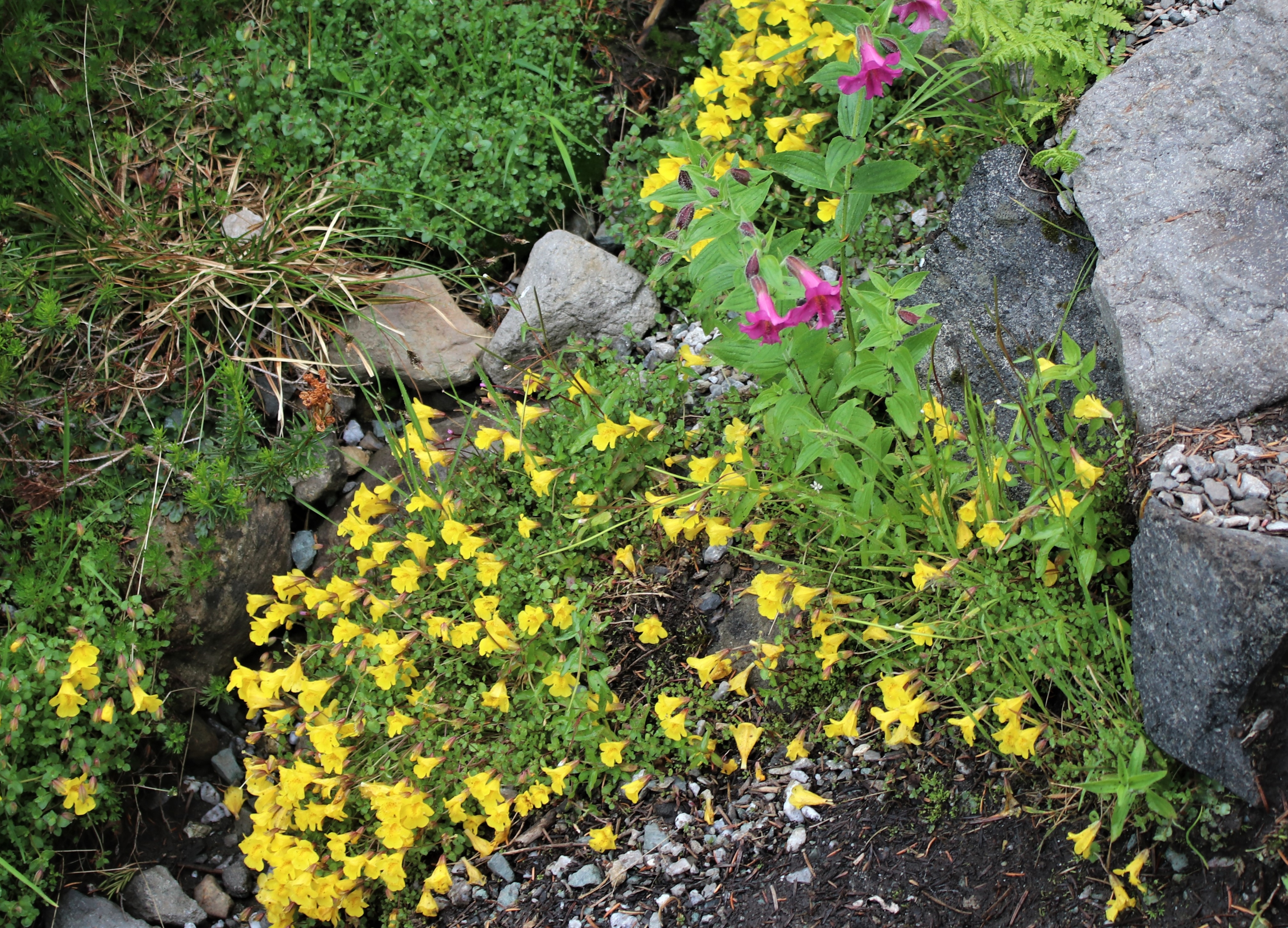
Yellow and Pink Monkey Flower, Mount Baker – Snoqualmie National forest
Wild Flowers are usually aflame in mid August around the Mt. Baker – Snoqualmie National Forest, and so they were to the extent to which we could reach them. After a snowy winter and a near record snow pack, the snow had not yet melted from one of my favorite mountain trails.
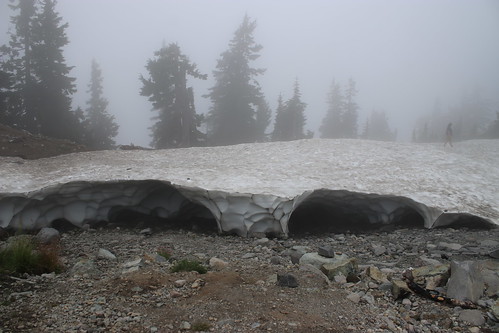
Ice caves at west end of the Artist Point parking lot
Picture Lake
Every visitor is obliged to stop at Picture Lake on the way up the mountain for its own beauty as as well as that it lies at the foot of Mt. Shucksan, and that is where the huckleberries are most prolific.
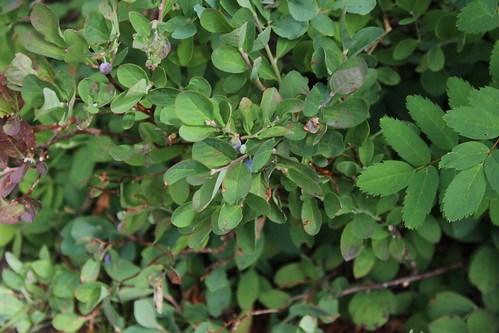
Huckleberries are ripe
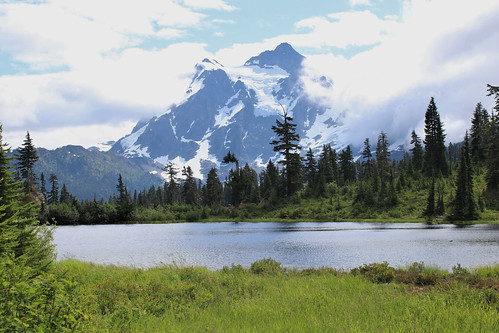
Mt. Shucksan across the lake wrapped in clouds
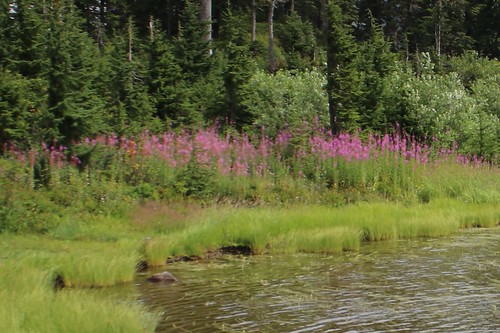
Fireweed along the lake
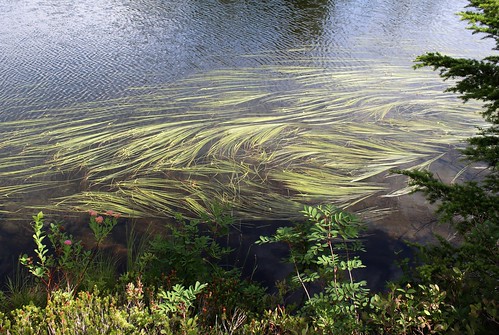
Narrow leaved (Floating) Burr-Reed with Spirea and Mountain Ash in the foreground
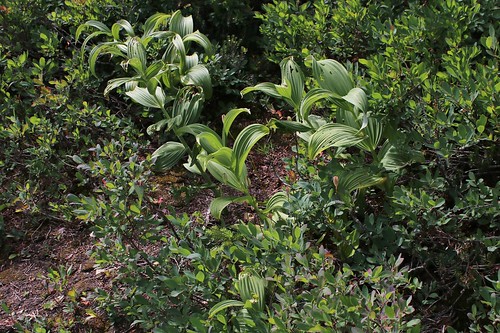
Green Corn Lily (Veratrum viride)
Artist Point
After visiting Picture Lake, we continued up to Artist Point that at 5,100 feet elevation typically affords panoramic views of Mt. Baker to the southwest and Mt. Shucksan to the east. Unfortunately Artist Point was totally shrouded in clouds. Further, much of the trail beyond the parking lot was still buried in snow.
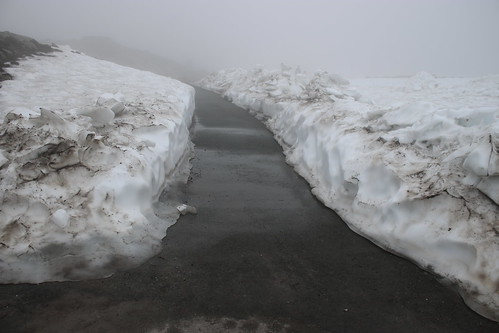
Path from the Parking lot into the cloud
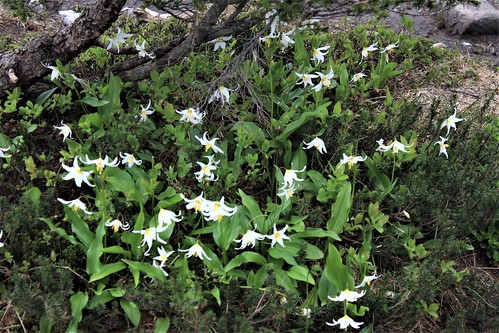
In a snow free patch of dirt, the Avalanche Lilies do not mind the snowy environs
Austin Pass & Bagley Lakes
We then retreated down the mountain a bit and out of the clouds to the Austin Pass area where we took the “Fire and Ice” trail that led us down into the Bagley Lakes. As you will see below, the slopes there were alive with wild flowers even with the low hanging clouds.
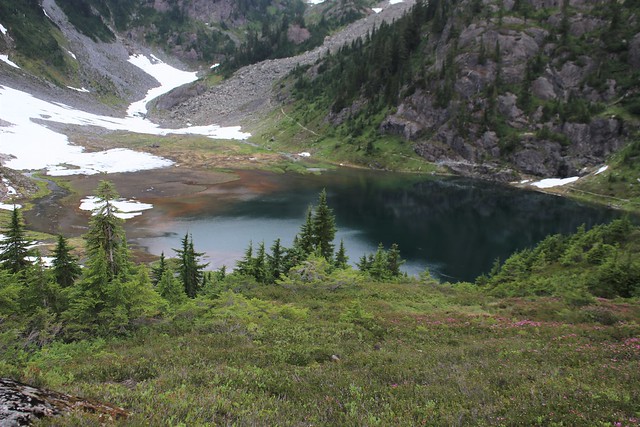
You can see a tinge of pink color from the field of Spiraea down to Bagley Lake. A scree slide and snow across the lake
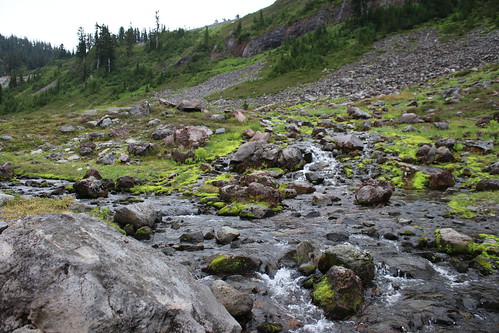
Two Freshets converging to feed the lakes below
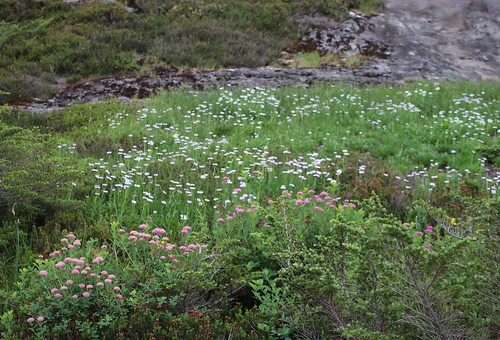
A meadow of Spiraea and Daisies
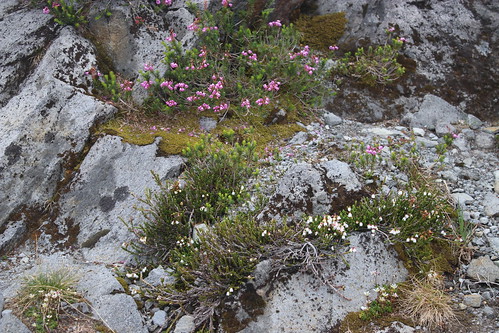
White and Pink Heather
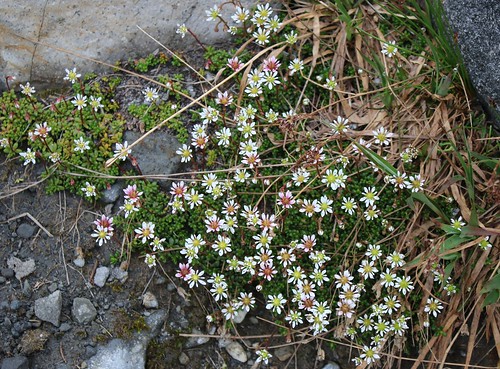
Tolme’s Saxifrage
..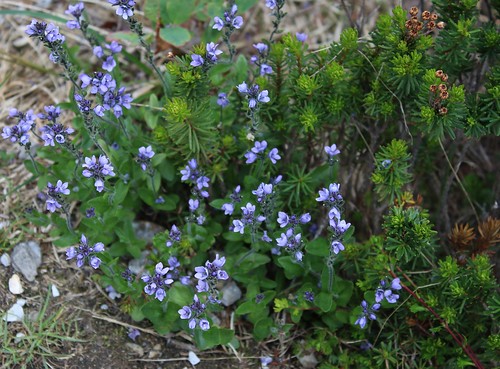
Veronica .
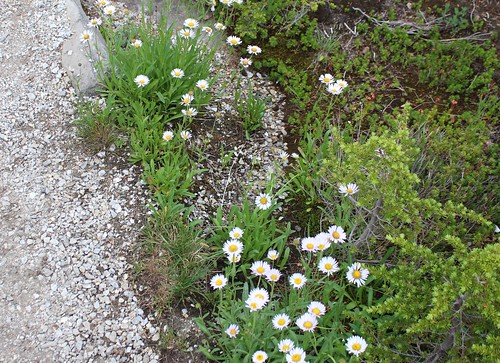
Wandering Daisy wandered all over
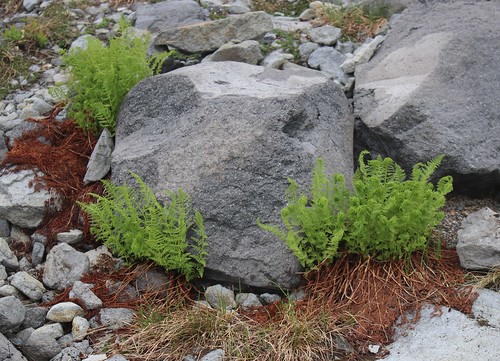
Fragile fern
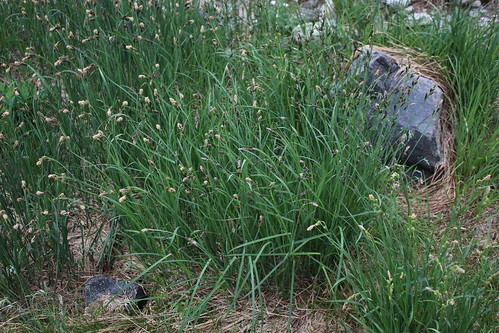
Sedge
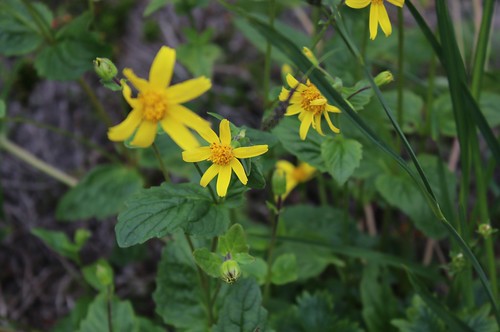
Mountain Arnica
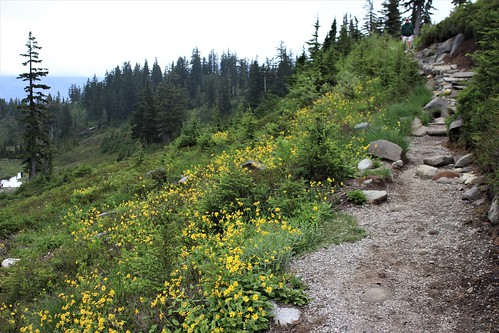
A mountain of Arnica along the trail
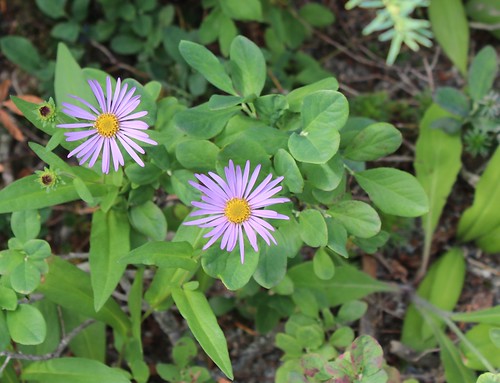
An Aster ? There are so many look-alikes.

Scouler’s valerian (Valerian scouleri)
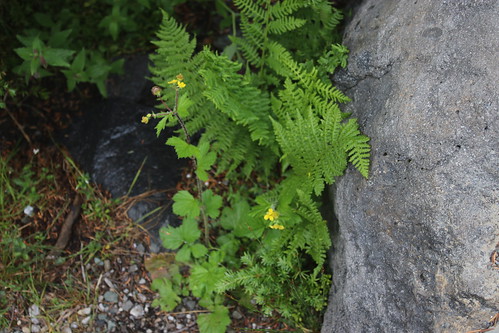
Large-leaved Avens (Geum macrophyllum)
Next Month I plan to return to see the fall colors. Snow melt and weather permitting, I hope to hike the Artist Point Trail. I’ll report back if successful.

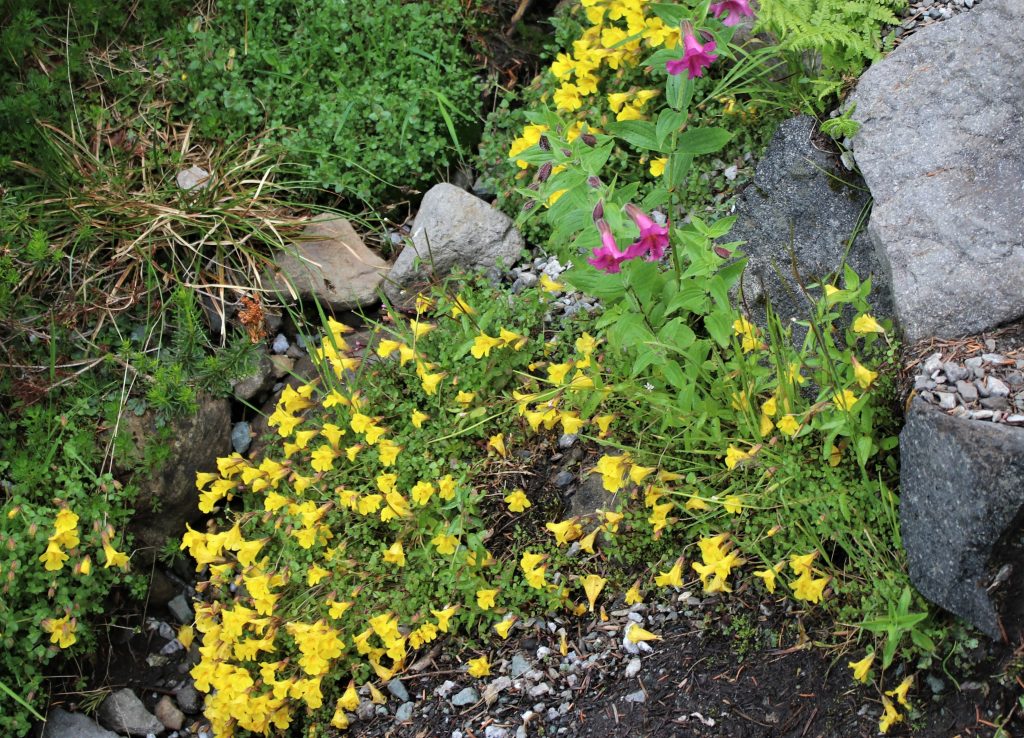
Here are some photos of late summer wildflowers from the Cascade Mountains in our backyard. I hope you enjoy the colors from the Pacific Northwest.
Help, two of the photos don’t show up. They are there if I click on them but are blank otherwise.
I counted the number of photos in the text and the number that showed and they are all accounted for. Tell me if they are still gone this morning and I will see if I can figure out what is going on.
Thanks, RonK! These are great shots.
Is the Mountain Arnica related to the arnica that is used for easing muscle aches and pains?
Thanks Jan, I eventually got them back but have no idea why they disappeared at first.
I do not know its medicinal uses but I would not be surprised. There are several varieties arnica.
Beautiful…thank you for sharing. Your posts are a better way to start the day than coffee in the morning! I’m really surprised to see the spiraea in a natural setting. Because so many of the retail offerings in this area are Spiraea japonica cultivars, I’d always assumed they were a non-native shrub that some enterprising botanist had bred for broader consumption. Do you now what species are shown in you photos?
I am pleased that you enjoyed the photos DoReMI.
This mountain/meadow species is douglasii. It is named after David Douglas the Scottish botanist who named the Douglas Fir tree.
Thank you. We only grew thejaponicas when I still worked in the industry, so now I have some reading up to do.
Beautiful. Thanks.
Thanks BfitzinAR. I glad that you enjoyed the photos.
Ron K, thank you for the enormous pleasure you’ve given us by this photo essay. It’s breath-taking! And even before I read it, I was hoping you’d mention huckleberries! There’s a huckleberry hand cream I order from a site on line that helps the eczema on my hands.
What glorious sights and colors you captured! You are very enterprising to climb so far and high. Fireweed—encountered that once in Alaska. Was interested to see what sedge looks like. Remember that line in John Keats’ “La Belle Dame Sans Merci”?
The sedge is wither’d from the lake
And no birds sing.
Unfortunately I’m so colorblind I couldn’t discern the tinge of pink in the photo of the spirea. (Last week I bought a bottle of nail polish in the mistaken belief it was pale pink—it’s actually tin-colored, I discovered when I arrived home.)
Reading your beautiful essay made my blood pressure go down, I’m sure. Looking forward to your “fall color on the mountain” essay!
Thank you for your kind comments Diana. I too very much enjoy getting out in nature to record its wonders.
I’m glad I was able to provide you with am image of sedge to go with Keats’ words.
And huckleberries are such a treat. I always look forward to going up the mountain this time of year just to get a quick taste of these delicious little berries.